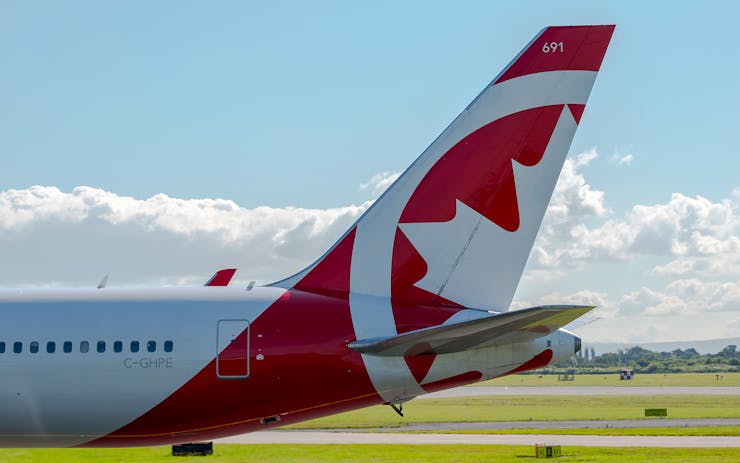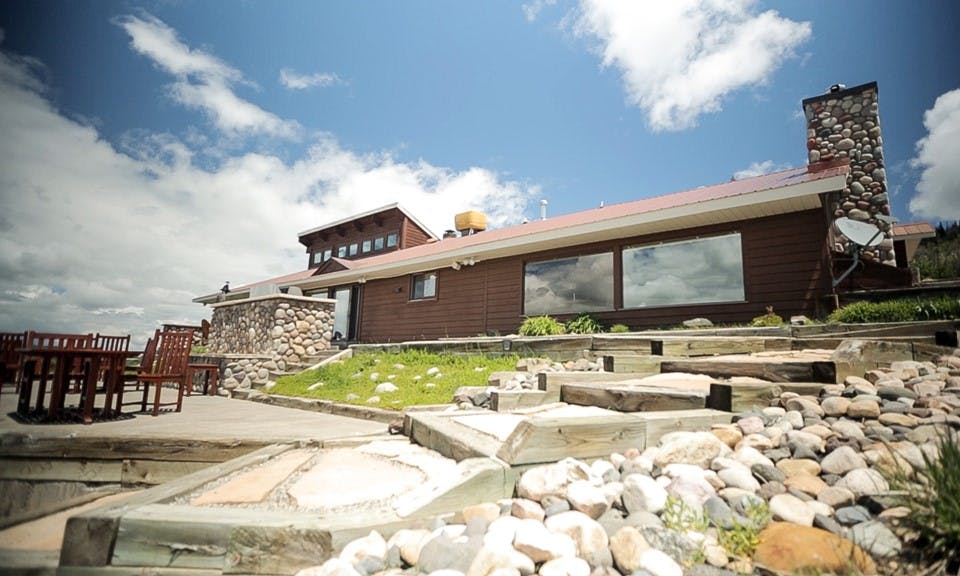When Peggy Kennedy arrives at a Canadian airport to travel within the country, she can never anticipate if she’s going to be treated like a criminal or a regular passenger.
That’s because she’s been a medicinal marijuana patient since 2015. Her doctor agreed to prescribe it to help deal with the severe pain she lives with from a tractor-trailer accident in the late ‘90s.
As a regular traveler within the country, Ontario-based Kennedy will bring the maximum amount that patients are allowed to possess–150 grams–in oils, balms, and dried flower, along with her prescription. Then she hopes for things to roll along smoothly—but that doesn’t always happen.
If Kennedy had to give a Yelp review on how she was treated as a passenger travelling with medicinal cannabis, she would give Winnipeg James Armstrong Richardson International Airport five stars and Toronto’s Pearson Airport zero stars. There, she was searched, detained, and threatened with a bench warrant if her credentials didn’t work out. (They did.) She admits that travelling as a medicinal-marijuana patient is stressful, confusing and tedious, as the guidelines have never been straightforward.
“The rules change constantly, despite the fact that they don’t tell you they’ve changed,” she tells Leafly. “I don’t enjoy being singled out, searched, pulled aside…in the end they always let me go, but it’s humiliating having people stare at you.”
As Canada’s July 1, 2018 deadline for legalization approaches, there’s still a lot of uncertainty about how medical-marijuana patients should travel with their medicine.
For Kennedy, there are few other options when it comes to travelling with the only medication that helps manage her pain. “I can’t not travel with it and make life easier, I have to travel with it,” she says.
UNCERTAINTY AMONG PATIENTS
As Canada’s July 1, 2018 deadline for legalization approaches, there’s still a lot of uncertainty about how medical-marijuana patients should travel with their medicine. Meanwhile, the number of registered patients in the country swiftly continues to spike. According to Health Canada, at the end of March, nearly 167,000 Canadians were signed up with one of the country’s 38 licensed producers.
The brief notice on the Canadian Air Transport Security Authority (CATSA) website states that while medical marijuana is permitted in carry-on and checked luggage, travelers must be prepared to show medical documentation. Once security has been informed, police will be called, if they are present in the airport, to verify the documentation. The type of documentation needed depends on the individual patient, though that isn’t specified on the website. If patients get their medicine from a licensed producer, documentation would be a prescription, while those who grow themselves would need to bring a document issued by Health Canada. The CATSA website does not specify how much medicinal marijuana a patient is allowed to bring onboard.
CATSA’s Matthieu LaRoche says it’s a simple process as long as the passenger is forthcoming. “Let the screening officers know you’re travelling with medicial marijuana,” he explains. “They’ll alert local police at the airport and validate the passenger’s documents and they’ll be able to continue to the gate.”
Passengers can request that this step be done in a private room and away from other passengers, LaRoche says, admitting that “being told we’re going to call the police can be intimidating.”
When it comes to international travel, however, the one rule is straightforward: Leave your pot at home.
ALTERNATIVE OPTIONS
Jonathan Zaid is the founder and executive director Canadians for Fair Access to Medical Marijuana (CFAMM). He spends a lot of time talking to patients looking to travel internationally but are unsure what to do about their medicine.
Shop highly rated dispensaries near you
Showing you dispensaries near“Legally, the only option is not to take it,” he says. “The other option is a pharmaceutical which will give them some level of relief, an interim medication they can take across borders.”
Zaid suggests Nabilone, a synthetic analogue of THC that helps with nausea, sleep, and pain, or Sativex, an alcohol extraction derived from cannabis that’s sprayed under the tongue.
The last option, he adds, is to obtain medicinal marijuana at your destination, but only in compliance with a country’s local laws and regulations concerning legalized cannabis.
That’s exactly what Ellen Durkee does, but only when she’s visiting California. The Maritime-based retiree, who’s been a patient since 2010, was invited there for a medicinal Cannabis Cup, which had a doctor on site. She paid the $100 consultation fee and can now buy her supplies when visiting the state. However, she otherwise knows not to travel internationally with her medicine. Durkee says that when she does travel abroad without medication, the biggest consequence is the heightened pain from her condition that she has to face as a result.
Unlike Kennedy, Durkee has only been stopped once while travelling within Canada with her medicinal cannabis, and only after she informed security she was travelling with 30 grams. When the RCMP checked her through, one official advised her to put it in her luggage and not say anything next time, which contradicts LaRoche’s instructions. Since then, she’s followed that advice and has never been stopped.
WHAT THE FEDS SAY
A spokesperson for Health Canada told Leafly that it’s the patient responsibility to learn about guidelines and restrictions relating to travelling with their medications. The Global Affairs Canada website has directives, recommending passengers “carry a copy of the original prescription and ensure that both the generic and trade names of the medication are included in case of loss or theft. A doctor’s note describing why you are taking the medication is also recommended.” However, there’s no specific mention of cannabis.
FUTURE CHANGES UNCLEAR
Zaid sees the current system as problematic. When police or RCMP at the airport screens patients, they are obtaining information about how much cannabis the passenger is travelling with. “There’s no kind of data security mechanisms to keep track of that and patients are receiving all kinds of information [on what they should do when they travel with their medicinal marijuana],” he says.
Earlier this year, Canadians for Fair Access to Medical Marijuana filed a formal complaint with the privacy commissioner of Canada to look into the situation. They want to determine whether tracking legally authorized patient’s information—who is flying with what amount of medicinal cannabis—is a privacy violation on the part of police or RCMP.
“There’s no regulatory or legal obligation for them to do that,” Zaid says. “Their job is to ensure protection of aviation and what goes along with that, rather than tracking legally authorized medications.”
The CFAMM website also provides tips on travelling with medicinal cannabis. It advises travelling with receipts and Health Canada-issued documents, as well as any original bottles from licensed producers. It also suggest travellers grant themselves extra time at airports.
Zaid can’t predict whether travelling as a patient will get easier or more challenging once legalization is in place. He suspects the biggest challenge for Canada will be making changes to international regulations and treaties that the country is part of.
Since most treaties allow the import and export of marijuana for medicinal purposes, he sees potential for the government to open it up to patients.
“There really isn’t a reason why, if you have a legal destination with medical cannabis and you’re legally authorized, you shouldn’t be allowed to cross borders like you would with any other medications,” he says.






